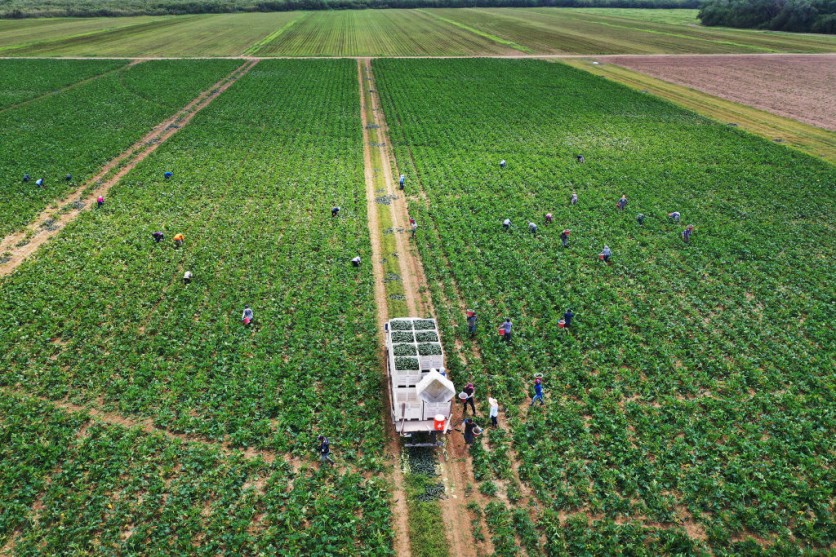Irish startup Silicate is poised to launch its first U.S. trial of advanced carbon removal techniques. The Sligo-headquartered firm asserts it possesses state-of-the-art technology capable of permanently extracting carbon dioxide from the air and securely storing it in the world's oceans for tens of millennia.

Enhance Weathering to US Farmland
Irish environmental technology startup Silicate is preparing for its inaugural trial of advanced weathering techniques in the United States. Interesting Engineering reported that the innovative company claims its technology can permanently extract and store carbon dioxide from the air in the oceans for thousands of years.
This experiment will entail the distribution of 500 metric tons of crushed waste concrete across 50 hectares of farmland near Chicago, equivalent to an expanse the size of 120 football fields. Over the course of a year, the processed concrete will naturally disintegrate in the soil, initiating a procedure termed "enhanced weathering."
Enhanced weathering accelerates the natural chemical weathering process, which typically takes millions of years, dissolving rocks into bicarbonate. This operation segregates carbon dioxide from the atmosphere, channeling the bicarbonate into rivers and the sea, where it either remains in dissolved form or becomes sequestered in the seabed.
Silicate adopts a pioneering approach by transforming silicate rocks into fine powder, significantly increasing their reactivity, and then disperses this powdered substance across agricultural land.
The company acquires excess concrete from construction firms, subjecting it to processing before delivering it to agricultural sites, all at no cost. This method not only facilitates carbon dioxide removal but also enriches soil quality and elevates crop productivity.
Maurice Bryson, CEO and co-founder of Silicate, expressed that their innovative approach, which employs recycled concrete to enhance farmland productivity and increase carbon removal capacity, has the potential to be a game-changer.
TNW reported that this approach stands out due to its cost-effectiveness, safety for agricultural use, and the abundant availability of the material. Furthermore, the company is embarking on a U.S. trial with the aim of permanently sequestering approximately 100 tons of carbon dioxide from the atmosphere.
Impact on Carbon Dioxide Removal
Silicate's visionary technology has the potential to make a remarkable impact on carbon dioxide removal. The startup anticipates that, through its innovative approach, it could be instrumental in permanently sequestering a substantial annual carbon dioxide range, estimated to be between 50 and 100 million tonnes within the region.
To grasp the significance of this achievement, consider that an average passenger vehicle emits around 4.6 tonnes of carbon dioxide each year. If successful, Silicate's efforts would be equivalent to removing millions of vehicles' worth of carbon emissions.
Should the outcomes of the United States trial prove to be promising, Silicate is ready to embark on an expansion journey across Illinois and the broader Midwest. This expansion would further amplify its commitment to fighting climate change by scaling up the implementation of its groundbreaking technology in new areas.
The financing for this trial comes from the THRIVE/Shell Climate-Smart Agriculture Challenge, a testament to the importance placed on innovative solutions to address climate-related challenges. The trial will be characterized by meticulous monitoring, facilitated by the use of advanced LI-COR soil gas flux measurement devices provided by Shell.
This comprehensive monitoring process will persist for the entire year of testing, ensuring the technology's efficacy. Silicate's approach to carbon removal underscores the pivotal role that startups and their cutting-edge technologies play in addressing one of the most pressing global challenges: climate change mitigation.
Related Article : This Montreal Tech Company is Producing Concrete Blocks that Remove Carbon Dioxide from the Atmosphere





